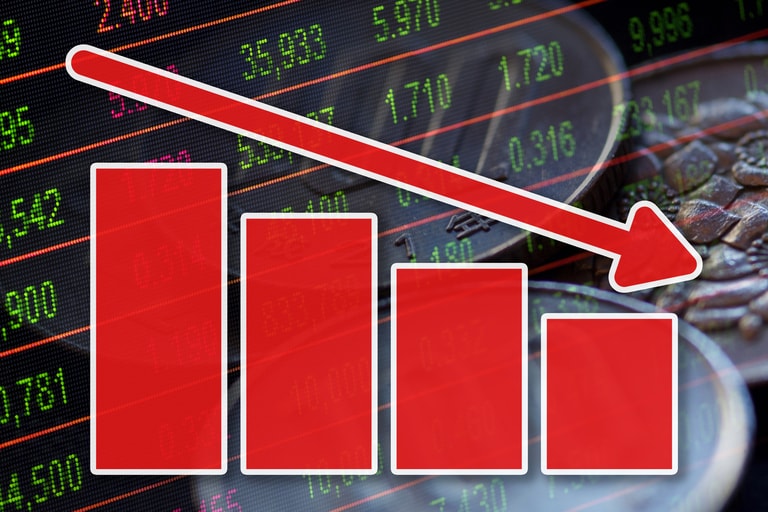It’s been a fairly lacklustre start to equity markets trading this week, as we head towards another positive month for European equities.
Europe
French luxury firm LVMH set another notable benchmark today, becoming the first ever European company to reach a $500bn market cap as it continued to build on its gains from last week. In so doing we also saw the CAC 40 push up to another new record high in the process. The CAC 40’s performance so far this year has been very much driven by this sector, with Hermes the best performer, followed by LVMH and L’Oréal.
The FTSE 100 has chopped in and out of negative territory for most of the day with basic resources and telecoms providing the main drag, while energy has pulled the index off its intraday lows. Weak iron ore prices, which have slipped to their lowest levels this year, are acting as a dead weight on the likes of Glencore and Anglo-American. BP and Shell were initially acting as a drag, however a rebound in oil prices has managed to pull the FTSE 100 off its lows, and into positive territory.
It’s set to be a big week for the UK banking sector in the wake of the problems thrown up by the collapse of Credit Suisse and subsequent turmoil across the sector. This morning investors got the first look below the bonnet so to speak and it wasn’t a pretty sight, with the bank seeing outflows of £55bn during the quarter, not so much a bank run as a sprint. Nonetheless, the bank was still able to turn a £9bn profit largely due to wiping out its AT1 bondholders. Despite the size of the outflows, the shares of both UBS and Credit Suisse have edged higher.
UK banks Standard Chartered, Barclays, and NatWest Group are all set to announce their Q1 numbers later this week.
US
US markets opened flat as we head into a key week for the tech sector, with tomorrow’s numbers from Microsoft and Alphabet set to kick things off, with Meta and Amazon due later in the week.
It appears that time has finally caught up with Bed, Bath and Beyond as it finally filed for bankruptcy, setting in motion the process of closing all of its stores, and selling all of its inventory as it finally called time on any restructuring plan. The firm said it is still looking for a buyer for some of its assets.
Coca-Cola shares have pushed to their highest levels this year after reporting Q1 numbers that came in ahead of forecasts. Organic revenues came in at $10.98bn, a rise of 12%, while profits came in at $0.68c a share, helped by better-than-expected margins of 60.9%. The best performance came from Europe which saw a 23% improvement in organic revenue growth, followed by Latin America rising by 19%. The company left its full-year outlook unchanged
Disney shares are also in focus after the company announced it was starting another wave of job losses, as it looks to cut $5.5bn in costs. A number of 7,000 positions has been touted with further layoffs starting today, with the main units being affected including ESPN, and the Parks division, although not on the customer-facing side.
Tesla shares have slipped back after the electric car company increased its 2023 capex forecast to at least $7bn a year, and as high as $9bn as it looks to invest in new capacity.
FX
Currency markets have been a bit of a mixed bag today with the Swiss franc the best performer and the Japanese yen the worst performer in what has been a relatively quiet session.
The weakness in the yen may also be down to some position adjustment ahead of this week’s Bank of Japan monetary policy decision which could throw a curveball into market expectations around when the Japanese central bank might look at changing its current policy stance.
There’s widespread expectation that new bank governor Kazuo Ueda won’t make too many waves this week, however, he can’t ignore the fact that core CPI in Japan is already at 40-year highs and showing little signs of slowing. At some point, the BOJ will have to look at changing its current policy settings, and if not this week, it surely can’t be too long in coming.
Commodities
Crude oil prices have rebounded modestly from their lowest levels this month, having posted their biggest weekly loss since March last week on a combination of rising concern over a softer global growth outlook, as well as lower demand out of China.
The sharp rise in short-term yields last week saw gold prices slide back below the $2,000 an ounce level in a sign of diminishing expectations that rate cuts might be coming in the short term. Better than expected economic data, along with more resilient company earnings has prompted a reassessment of the possible timing of when central banks might dial back recent rate increases. Gold currently has support at the $1,960 area.
CMC Markets erbjuder sin tjänst som ”execution only”. Detta material (antingen uttryckt eller inte) är endast för allmän information och tar inte hänsyn till dina personliga omständigheter eller mål. Ingenting i detta material är (eller bör anses vara) finansiella, investeringar eller andra råd som beroende bör läggas på. Inget yttrande i materialet utgör en rekommendation från CMC Markets eller författaren om en viss investering, säkerhet, transaktion eller investeringsstrategi. Detta innehåll har inte skapats i enlighet med de regler som finns för oberoende investeringsrådgivning. Även om vi inte uttryckligen hindras från att handla innan vi har tillhandhållit detta innehåll försöker vi inte dra nytta av det innan det sprids.






